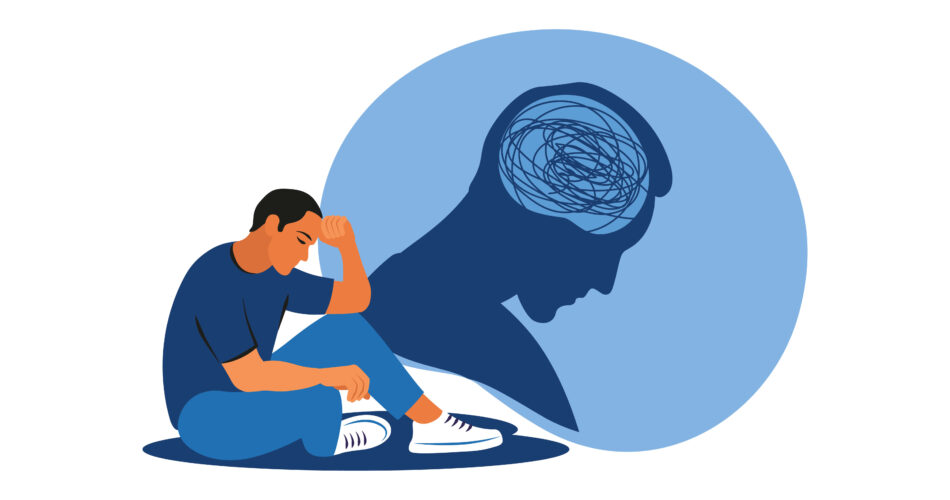Understanding the causes and consequences of mental stress is the first step towards developing strategies to nurture emotional resilience. Find out the concept of emotional resilience and explore its impact to struggling patients.
Uncover the science behind mental stress as we through this comprehensive guide today!
Understanding Mental Stress

Mental stress is a natural response to challenging or demanding situations. It is our body’s way of preparing us to deal with threats or pressure. While short-term stress can be beneficial in motivating us to perform at our best, chronic or excessive stress can take a toll on our physical and mental health.
Stress is a complex phenomenon that affects us on multiple levels – physically, mentally, and emotionally. When we experience stress, our bodies go through a series of intricate processes that are designed to help us cope with the situation at hand.
The Science Behind Mental Stress
When we encounter a stressful situation, whether it’s a deadline at work or a personal conflict, our brains initiate a stress response. This triggers the release of stress hormones, such as cortisol and adrenaline, which prepare our bodies for action.
As these hormones flood our system, they have a profound impact on various physiological processes. Our heart rate increases, blood pressure rises, and our senses become sharper. This heightened state of alertness allows us to react quickly and effectively to potential threats.
However, when stress becomes chronic, our bodies remain in a constant state of high alert. This prolonged activation of the stress response can lead to a range of health issues, both physical and psychological.
Physical Consequence of Stress
Physically, chronic stress can weaken our immune system, making us more susceptible to illnesses and infections. It can also contribute to the development of cardiovascular problems, such as high blood pressure and heart disease. Additionally, prolonged stress can disrupt our sleep patterns, leaving us feeling fatigued and drained.
Mental Consequence of Stress
Mentally and emotionally, chronic stress can take a toll on our overall well-being. It can lead to feelings of anxiety, irritability, and mood swings. It can also impair our cognitive function, making it difficult to concentrate, remember things, and make decisions.
Common Causes of Mental Stress

Each person experiences different kinds of mental stress. It can stem from various sources, which can make them feel overwhelmed. Learn how unique experiences can turn into stress with the following known causes.
Work-related Stress
It is a common cause of mental stress in today’s fast-paced and competitive world. The pressure to meet deadlines, perform well, and juggle multiple responsibilities can be overwhelming.
Relationship Stress
Similarly, relationship problems, whether with a partner, family member, or friend, can cause significant stress and emotional turmoil.
Financial Stress
Meanwhile, financial difficulties can also be a major source of stress, as they can impact our sense of security and stability. The constant worry about money can lead to sleepless nights and constant anxiety.
Environmental Stress
Additionally, the daily hassles of life, such as traffic, long commutes, and household chores, can accumulate and contribute to our overall stress levels.
Traumatic Stress
Furthermore, major life events such as divorce, loss of a loved one, or experiencing trauma can often trigger significant stress. These events can disrupt our sense of normalcy and stability, leaving us feeling overwhelmed and emotionally drained.
It’s important to identify and understand the specific stressors in our lives to effectively manage and reduce their impact on our mental well-being. If you’ve been stressed out lately, and it affects your daily activities, it would be best to consult to an expert. Doing so will allow you to take proactive steps and address them for developing healthy coping mechanisms.
The Impact of Mental Stress on Overall Health

While mental stress is primarily a psychological experience, its effects extend beyond our emotions. The link between mental stress and physical health has been well-documented, with stress being implicated in a wide range of health problems.
Here are some of the scenarios where mental stress can result in various health complications.
Threat to Cardiovascular System
Our cardiovascular system, for example, is particularly vulnerable to the detrimental effects of stress. Research has shown that prolonged stress can increase the risk of heart disease, high blood pressure, and even heart attacks.
Compromised Immune System
Additionally, stress can have a profound impact on our immune system. When we experience stress, our body releases stress hormones that can suppress the immune response, making us more susceptible to infections and illnesses. This weakened immune system can also slow down the healing process, making it more difficult for our bodies to recover from injuries or illnesses.
Disruption of the Gastrointestinal System
Furthermore, the gastrointestinal system is not immune to the effects of stress. Many individuals report experiencing digestive problems such as stomachaches, diarrhea, or constipation during periods of high stress. This is because stress can disrupt the normal functioning of the digestive system, leading to discomfort and digestive disorders.
Unhealthy Habits
It is worth noting that stress often disrupts our dietary and lifestyle habits as well. When we are stressed, we may turn to unhealthy coping mechanisms such as overeating, indulging in alcohol or drugs, or neglecting exercise and self-care. These behaviors can further compound the negative impact of stress on our overall health, leading to weight gain, substance abuse issues, and a decline in physical fitness.
Emotional Resilience: An Overview

Defining Emotional Resilience
Emotional resilience is not about avoiding stress altogether but rather developing the tools and skills to deal with it effectively. It’s about harnessing our inner strengths and resources to navigate through life’s ups and downs with greater ease and grace.
With self-awareness, it allows us to recognize our triggers and develop strategies to cope with stressors effectively. This positive outlook helps individuals maintain hope and find the motivation to keep moving forward.
The Importance of Emotional Resilience
Someone with emotional resilience sees these challenges as opportunities for growth and learning. They are able to maintain perspective, manage their emotions, and find constructive solutions to problems. That’s because it plays a significant role in building and maintaining healthy relationships.
When faced with conflicts or disagreements, individuals with emotional resilience can approach these situations with empathy and understanding. They are better equipped to communicate effectively, resolve conflicts, and maintain harmonious connections with others.
By building emotional resilience, we can lead more fulfilling and meaningful lives. It allows us to embrace change, adapt to new circumstances, and continue to grow as individuals. Emotional resilience is not just a trait; it is a skill that can be developed and strengthened over time through self-reflection, practice, and seeking support when needed.
Strategies for Managing Mental Stress

There are various strategies we can employ to effectively manage mental stress and preserve our emotional well-being. These strategies encompass both physical and psychological approaches and can be customized to suit individual needs and preferences.
Mindfulness and Meditation Techniques
Mindfulness and meditation have gained increasing recognition as powerful tools for managing stress and promoting emotional well-being. By practicing mindfulness, we cultivate present moment awareness and learn to observe our thoughts and emotions without judgment.
Meditation, on the other hand, involves training our minds to achieve a state of deep relaxation and focus. Regular mindfulness and meditation practice can reduce stress levels, improve mood, and enhance emotional resilience.
Cognitive Behavioral Approaches
Cognitive-behavioral approaches aim to identify and modify negative thought patterns and behaviors that contribute to stress. By recognizing and challenging irrational thoughts and beliefs, we can reframe our perceptions, which in turn reduces stress and improves our overall well-being.
Therapeutic techniques such as cognitive restructuring, problem-solving skills, and relaxation exercises can be incorporated into everyday life to help manage stress more effectively and build resilience.
Building Emotional Resilience
In addition to managing stress, it is crucial to actively work on building emotional resilience. By cultivating specific attitudes and behaviors, we can strengthen our ability to handle adversity and enhance our overall well-being.
Developing a Positive Mindset
Developing a positive mindset involves consciously focusing on the positive aspects of life rather than dwelling on negatives. It involves training ourselves to reframe challenges as opportunities for growth and to approach difficulties with optimism and determination.
Practicing gratitude, self-compassion, and maintaining a positive social support system can all contribute to the development of a resilient and optimistic outlook on life.
Strengthening Social Connections
Strong social connections are a crucial aspect of emotional resilience. Nurturing supportive relationships provides a network of emotional support, encouragement, and understanding during times of stress.
Engaging in activities that foster social connections, such as joining clubs or organizations, volunteering, or participating in group activities, can help build a strong support network and enhance emotional resilience.
Final Takeaway
Managing mental stress and nurturing emotional resilience are essential for maintaining our overall well-being. By understanding the science behind mental stress, identifying its common causes, and recognizing its impact on health, we can take proactive steps to manage stress effectively.
Harness the power of emotional resilience and develop the skills necessary to navigate through life’s challenges with grace, fortitude, and emotional well-being. Begin by consulting an expert for guidance today!



